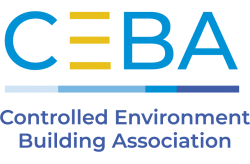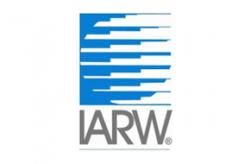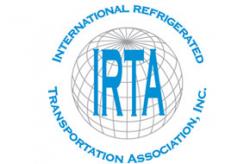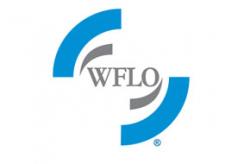GCCA in South Africa
First South African Cold Chain Conference.
The Global Cold Chain Alliance will host its first ever South African Cold Chain Conference on August 4, 2022, in Cape Town, South Africa. The South African Cold Chain Conference is South Africa’s only venue bringing together cold store operators, controlled-environment builders, equipment suppliers and service providers to discuss opportunities and innovations of this essential sector.
The conference will provide leadership experience, knowledge, and exclusive networking with decision makers from across South Africa and beyond, in a relaxed yet professional atmosphere. Throughout the conference, attendees will hear from thought leaders and industry experts and get a better understanding of industry trends, perspectives, and best practices. Delivered in various formats – keynote presentations and educational sessions, the program will offer interactive participation. Making connections with fellow delegates is an important aspect of any conference experience. That is why this event has ample opportunity to connect/re-connect with professionals who share your goals and your challenges.
Plenary Sessions & Learning Opportunities
With the support of the GCCA South Africa Advisory Council and the GCCA South Africa Risk Management Committee, GCCA is building a program that aims to be transformative, innovative, and practical. The conference’s keynote speakers are leaders in their industries, whether that is logistics, automation, economics, or talent management. Their stories will inspire attendees to think outside the box and widen their perspectives.
Program
Attendees at the conference will be provided a high-level overview of current trends and challenges experienced by the industry in various parts of the world, including a look at Africa. There will be a number of government affairs sessions offered as well as technical sessions with the latest innovations in cold storage and refrigerated transport.
Networking
The conference offers participants numerous networking opportunities to make new connections and strengthen existing relationships. Networking functions include an Early Arriver’s Dinner planned for Wednesday, August 3, and a Closing Reception on Thursday, August 4. Throughout the event, attendees will also have multiple opportunities to network with peers during breaks.
Sponsoring
The GCCA South Africa Cold Chain Conference is a supplier’s best venue for reaching temperature-controlled warehousing and logistics executives in the South African market. Increase your company’s brand visibility and promote your brand at the event through the sponsorship program. Each opportunity has been customized to spotlight your company throughout the entire event.
Location
The conference will be held at the Century City Conferencing Centre in Cape Town. For more information on the conference visit www.gcca.org/events.
Obtaining insurance has become challenging for refrigerated facilities in South Africa and globally. This is especially true for facilities that lack what is seen as acceptable fire protection. To address these challenges, the Global Cold Chain Alliance hosted a full day, inperson Fire Risk Insurance Seminar in Johannesburg, South Africa, on 10 March 2022. The seminar brought together 64 temperature-controlled warehousing and logistics executives from all over South Africa for discussions on innovations and trends and to network. This event was initiated by the GCCA SA Risk Management Committee at a committee meeting in September 2021.
Risk Management Committee Challenge
Gerhard Coetzee, the Financial Director of Sequence Logistics and Vice Chairman of the GCCA Risk Management Committee, gave an overview of the challenges experienced by the industry. These included the percentage increases in insurance rates over recent years and the fact that acquiring insurance is an even bigger challenge for some of the players in the industry. Coetzee explained the industry remains unsure if it is making the best possible investment decisions in terms of fire risk and ensuring that facilities are safeguarded with the best possible prevention and firefighting solutions available. And, that those solutions are in line with what is required from insurers.
Oxygen Reduction Systems
Allan Cunninghame from Nitro-Gen Africa gave a detailed overview of oxygen reduction systems as an alternative to sprinkler or foam fire suppression installations as an approved fire prevention system for cold and freezer rooms. Oxygen-controlled environments are noncombustible areas and provide a proactive approach to fire prevention rather than a reactive approach. A human being only breathes about 17% oxygen, which is the same level these freezer rooms are kept at, making them completely safe for staff to work in. A case study was presented on the oxygen reduction system that was installed at the Euroberry distribution center in Somerset West, South Africa.
Insurance Market Trends
Pieter Kruger from Marsh explained that the biggest problem with insurance claims is business interruption claims, and the market has changed drastically. Contributing to the change is a consistent inability to achieve underwriting profits, a material decline in investment income, a reduction in available risk capital, historical under-pricing, and a confluence of industry events, both man-made and naturally occurring. COVID-19 claims have become more common in insurance, which has also changed the industry drastically. It has resulted in larger companies increasing the use of data and analytics to ensure their risk financing decisions are informed, data driven and sustainable. Many players are either reassessing the strategic use and value of self-insurance or considering the formation of a specialist self-insurance model at the center of their risk financing strategy. Kruger noted that markets are pressurized by reinsurers to impose blanket Grid Failure Exclusions for South Africa. To improve your insurance renewal process, you should start early and stick to an agreed timetable, identify your risk tolerance, understand the market, avoid gaps in information, expect questions, highlight lessons learnt, sell your risk, use your relationships and cast the net wider. And, you should have a plan B.
Reducing the Risk
Karel Roodt from The Fire Engineer described the key fire engineering segments and how to comply to South African National Building Regulations. He then took the audience through a case study of a fire risk assessment that was undertaken at a bulk apple and pear supplier just outside of Grabouw in the Western Cape.
Foam Sprinklers
Hannes Pretorius of Paragon Systems Design explained a wet sprinkler system that combines water and a foaming agent for large scale fire extinguishment that can put out extensive fires in seconds with incredible efficiency. The water and foam mix will not freeze in a pipe grid. The foam blankets the surface smothering the fire. It suppresses the release of flammable vapours and creates a barrier between the fuel and the fire. Pretorius further explained that the foam lowers the surface tension of water and allows it to penetrate deep seated fires. Due to the high expansion ratios, less water storage and deliver capacity is required. There is less damage to electrical and electronic equipment and waste and contamination control is easier and safer. Frozen foams can be removed by mechanical means as opposed to frozen water, and mobile racking will still be able to move.
Smoke Detection
Lian van der Merwe of Exodus Group gave an overview of the latest innovations in smoke detection technology specifically designed for extreme temperature environments that will soon be launched. This breakthrough technology will revolutionize the way forward in controlledtemperature conditions to aid in fire detection. Van der Merwe further explained the practical applications, installation criteria and financial benefits.
Insulated Panels
Tammy Grove of Kingspan explained that not all insulation is the same and that the building fabric used is a crucial part of a holistic fire safe design. The general term “foam insulation” is used but is misleading. The different materials used all have their own specific characteristics and should not be generalized as foam insulation. Grove pointed out that stringent insurance industry requirements have led to the development of specific insurer-driven large-scale fire tests to assess the reaction to fire performance of insulated panels with different cores.
Panel Discussion
The Fire Risk Insurance Seminar concluded with a panel discussion moderated by Alasdair Martin of Vector Logistics. The audience was offered the opportunity to ask questions, which they enthusiastically made use of. Panellists included specialists from Bryte Insurance, Marsh, Old Mutual, Paragon Systems Design, IFESA and Lockton in the United States. The panel discussion gave the audience a good overview of how insurers are impacted by what happens overseas and why there are so few lead insurers in South Africa. Another point of discussion included the fear that local insurers might stop covering cold storage facilities completely as has happened in Australia. Other topics included early detection systems vs sprinkler systems, the main cause of fires in cold storage building internationally and regulations in South Africa.
LIZELLE VAN DER BERG is Director – GCCA South Africa.
EMAIL: Lvanderberg@gcca.org
Source: Cold Facts May/June 2022 issue



